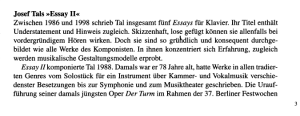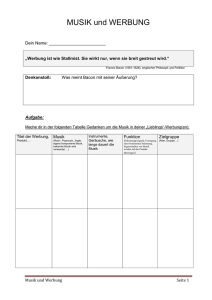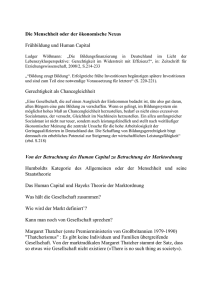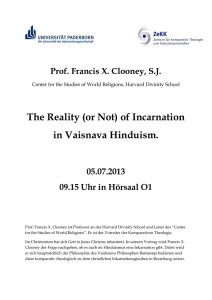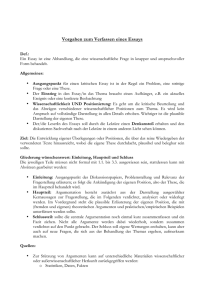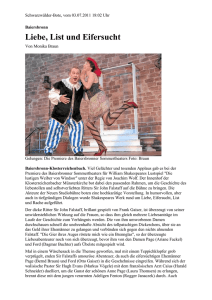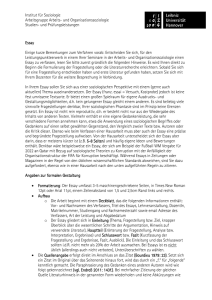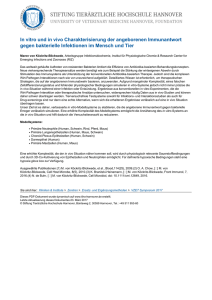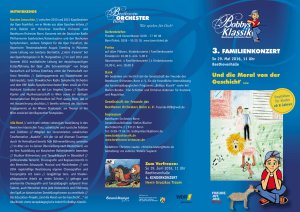LESELISTE K I S
Werbung
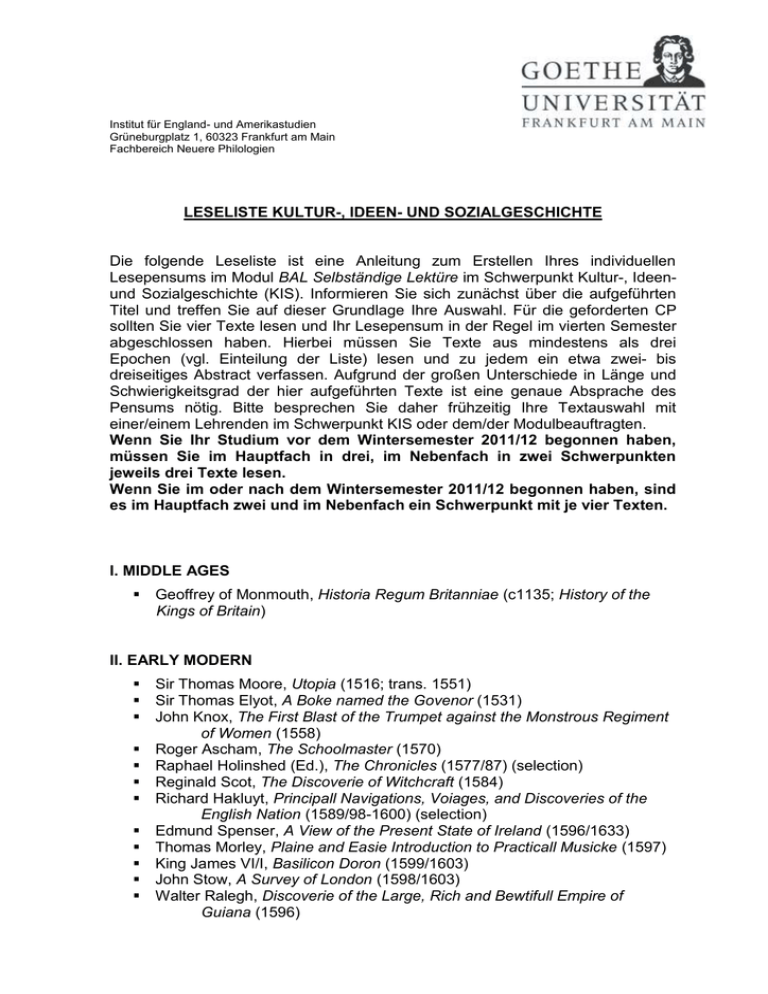
1 Institut für England- und Amerikastudien Grüneburgplatz 1, 60323 Frankfurt am Main Fachbereich Neuere Philologien kpok LESELISTE KULTUR-, IDEEN- UND SOZIALGESCHICHTE Die folgende Leseliste ist eine Anleitung zum Erstellen Ihres individuellen Lesepensums im Modul BAL Selbständige Lektüre im Schwerpunkt Kultur-, Ideenund Sozialgeschichte (KIS). Informieren Sie sich zunächst über die aufgeführten Titel und treffen Sie auf dieser Grundlage Ihre Auswahl. Für die geforderten CP sollten Sie vier Texte lesen und Ihr Lesepensum in der Regel im vierten Semester abgeschlossen haben. Hierbei müssen Sie Texte aus mindestens als drei Epochen (vgl. Einteilung der Liste) lesen und zu jedem ein etwa zwei- bis dreiseitiges Abstract verfassen. Aufgrund der großen Unterschiede in Länge und Schwierigkeitsgrad der hier aufgeführten Texte ist eine genaue Absprache des Pensums nötig. Bitte besprechen Sie daher frühzeitig Ihre Textauswahl mit einer/einem Lehrenden im Schwerpunkt KIS oder dem/der Modulbeauftragten. Wenn Sie Ihr Studium vor dem Wintersemester 2011/12 begonnen haben, müssen Sie im Hauptfach in drei, im Nebenfach in zwei Schwerpunkten jeweils drei Texte lesen. Wenn Sie im oder nach dem Wintersemester 2011/12 begonnen haben, sind es im Hauptfach zwei und im Nebenfach ein Schwerpunkt mit je vier Texten. I. MIDDLE AGES Geoffrey of Monmouth, Historia Regum Britanniae (c1135; History of the Kings of Britain) II. EARLY MODERN Sir Thomas Moore, Utopia (1516; trans. 1551) Sir Thomas Elyot, A Boke named the Govenor (1531) John Knox, The First Blast of the Trumpet against the Monstrous Regiment of Women (1558) Roger Ascham, The Schoolmaster (1570) Raphael Holinshed (Ed.), The Chronicles (1577/87) (selection) Reginald Scot, The Discoverie of Witchcraft (1584) Richard Hakluyt, Principall Navigations, Voiages, and Discoveries of the English Nation (1589/98-1600) (selection) Edmund Spenser, A View of the Present State of Ireland (1596/1633) Thomas Morley, Plaine and Easie Introduction to Practicall Musicke (1597) King James VI/I, Basilicon Doron (1599/1603) John Stow, A Survey of London (1598/1603) Walter Ralegh, Discoverie of the Large, Rich and Bewtifull Empire of Guiana (1596) 2 Francis Bacon, The Essays, or Counsels, Civill and Morall (1597/1612/25) Francis Bacon,The Advancement of Learning (1605) Francis Bacon, New Atlantis (1626) Robert Burton, Anatomy of Melancholy (1621/51) Henry Peacham, The Compleat Gentleman (1622) Sir Thomas Browne, Religio Medici (1642/3) John Milton, Areopagitica (1644) Thomas Hobbes, Leviathan (1651) Gerrard Winstanley, The Law of Freedom, in a Platform (1652) James Harrington, The Commonwealth of Oceana (1656) Samuel Pepys, Diary (1660-69) Robert Boyle, The Sceptical Chymist (1661) Thomas Sprat, History of the Royal Society (1667) III. ENLIGHTENMENT Ralph Cudworth, The True Intellectual System of the Universe (1678) John Locke, An Essay concerning Human Understanding (1690) John Locke, Two Treatises of Government (1690) Anne, Vicecountess Conway, Principles of the most Ancient and Modern Philosophy (1692) Mary Astell, A Serious Proposal to the Ladies (1694) Anthony Ashley Cooper, Earl of Shaftesbury, Characteristics of Men, Manners, Opinions, Times (1711) Jonathan Swift, The Tale of the Tub (1704) George Berkeley, A Treatise concerning the Principles of Human Knowledge (1710/34) Bernard Mandeville, The Fable of the Bees (1714/23) Francis Hutcheson, An Inquiry into the Original of our Ideas of Beauty and Virtue (1725) Alexander Pope, Essay on Man (1732-4) Philip Dormer Stanhope, Earl of Chesterfield, Letters to His Son (1737ff/74) David Hume, A Treatise of Human Nature (1739/40) Edmund Burke, A Philosophical Enquiry into the Sublime and the Beautiful (1757) Adam Ferguson, An Essay on the History of Civil Society (1767) Adam Smith, Enquiry into the Nature and Causes of the Wealth of Nations (1776) IV. RADICALS Jeremy Bentham, Introduction to the Principles of Morals and Legislation (1789) Richard Price, A Discourse on the Love of Our Country (1789) Edmund Burke, Reflections on the Revolution in France (1790) Thomas Paine, The Rights of Man (1791/2) Mary Wollstonecraft, Vindication of the Rights of Woman (1792) William Godwin, Enquiry concerning Political Justice (1793) Thomas Robert Malthus, An Essay on the Principle of Population (1798) David Ricardo, Principles of Political Economy and Taxation (1817) Robert Owen, Report to the County of Lanark (1821) 3 James Mill, Analysis of the Phenomena of the Human Mind (1829) 4 V. VICTORIANS Thomas Carlyle, Past and Present (1843) John Ruskin, The Stones of Venice (1851-3) John Ruskin, Unto this Last (1860) Friedrich Engels, The Condition of the Working Class in England (1844/5) Henry Mayhew, London Labour and the London Poor (1851) Henry Mayhew, The Criminal Prisons of London (1862) Samuel Smiles, Self-Help (1859) Charles Darwin, On the Origin of Species by Means of Natural Selection (1859) John Stuart Mill, On Liberty (1859) John Stuart Mill, The Subjection of Women (1869) Karl Marx, Das Kapital (1867) Matthew Arnold, Culture and Anarchy (1869) Walter Bagehot, Physics and Politics (1872) Herbert Spencer, Principles of Sociology (1877) William Morris, “Useful Work versus Useless Toil” (1884) George Bernard Shaw &al., Fabian Essays in Socialism (1889) Douglas Hyde, “The Necessity for De-Anglicising Ireland” (1892) Thomas Huxley, Evolution and Ethics (1893/5) Sir James Frazer, The Golden Bough (1890-1915/36) Beatrice & Sidney Webb, Industrial Democracy (1897) VI. TWENTIETH CENTURY Sigmund Freud, Die Traumdeutung (1900) Sigmund Freud, Drei Abhandlungen zur Sexualtheorie (1905) Lytton Strachey, Eminent Victorians (1918) R.H. Tawney, The Acquisitive Society (1921) John Maynard Keynes, The General Theory of Employment, Interest and Money (1936) A.L. Morton, A People’s History of England (1938) Bertrand Russell, Power. A New Social Analysis (1938) Bertrand Russell, Human Knowledge, its Scope and Limits (1948) Norbert Elias, Über den Prozeß der Zivilisation (1939/69) R.G. Collingwood, New Leviathan (1942) F.A. Hayek, The Road to Serfdom (1944) Karl Popper, The Open Society and Its Enemies (1945) Theodor W. Adorno & Max Horkheimer, Dialektik der Aufklärung (1947) Gilbert Ryle, The Concept of Mind (1949) Ludwig Wittgenstein, Philosophical Investigations (1953) Richard Hoggart, The Uses of Literacy (1957) Roland Barthes, Mythen des Alltags (1957) Roland Barthes, Die helle Kammer (1980) Herbert Read, To Hell With Culture (1963) Claude Lévy-Strauss, Mythologica I (1964) Walter Benjamin, Illuminationen: Ausgewählte Schriften (EA 1969) Jacques Lacan, “Das Spiegelstadium als Bildner der Ich-Funktion” (1966) Jacques Lacan, Four Fundamental Concepts of Psycho-Analysis (1973) Michel Foucault, Die Ordnung des Diskurses (1971) Michel Foucault, Überwachen & Strafen (1975) 5 John Berger, Ways of Seeing (1972) Clifford Geertz, The Interpretation of Cultures (1973) Raymond Williams, Keywords (1976) Edward W. Said, Orientalism (1978) Benedict Anderson, Imagined Communities (1983) Judith Butler, Gender Trouble (1990) Homi Bhabha, Nation and Narration (1990) Homi Bhabha, The Location of Culture (1994)
